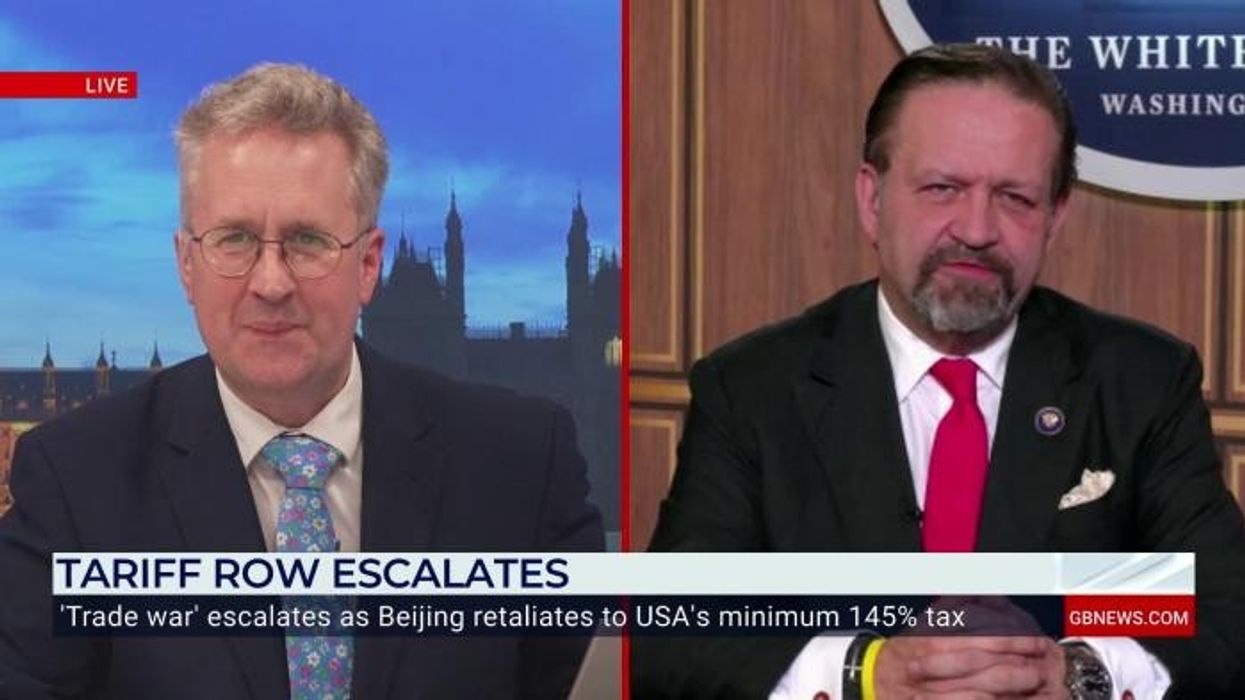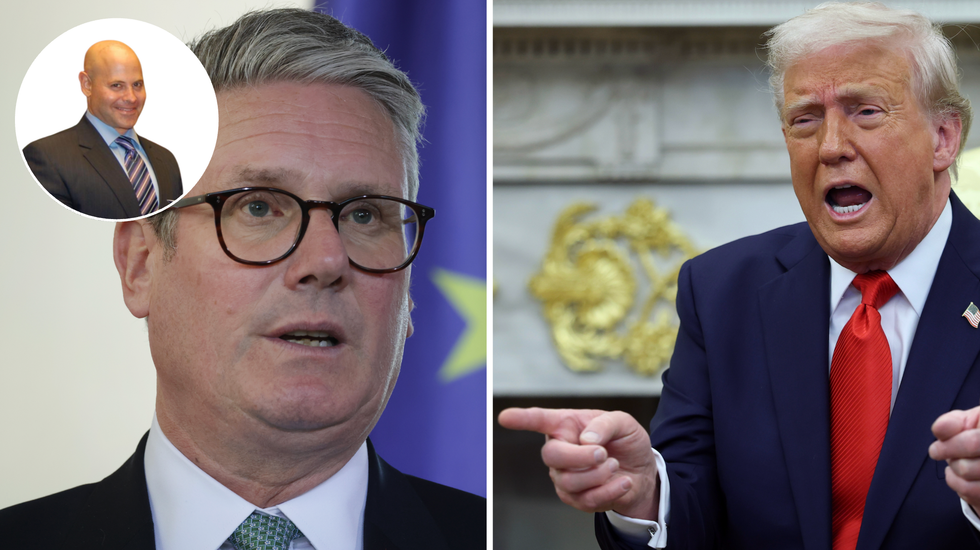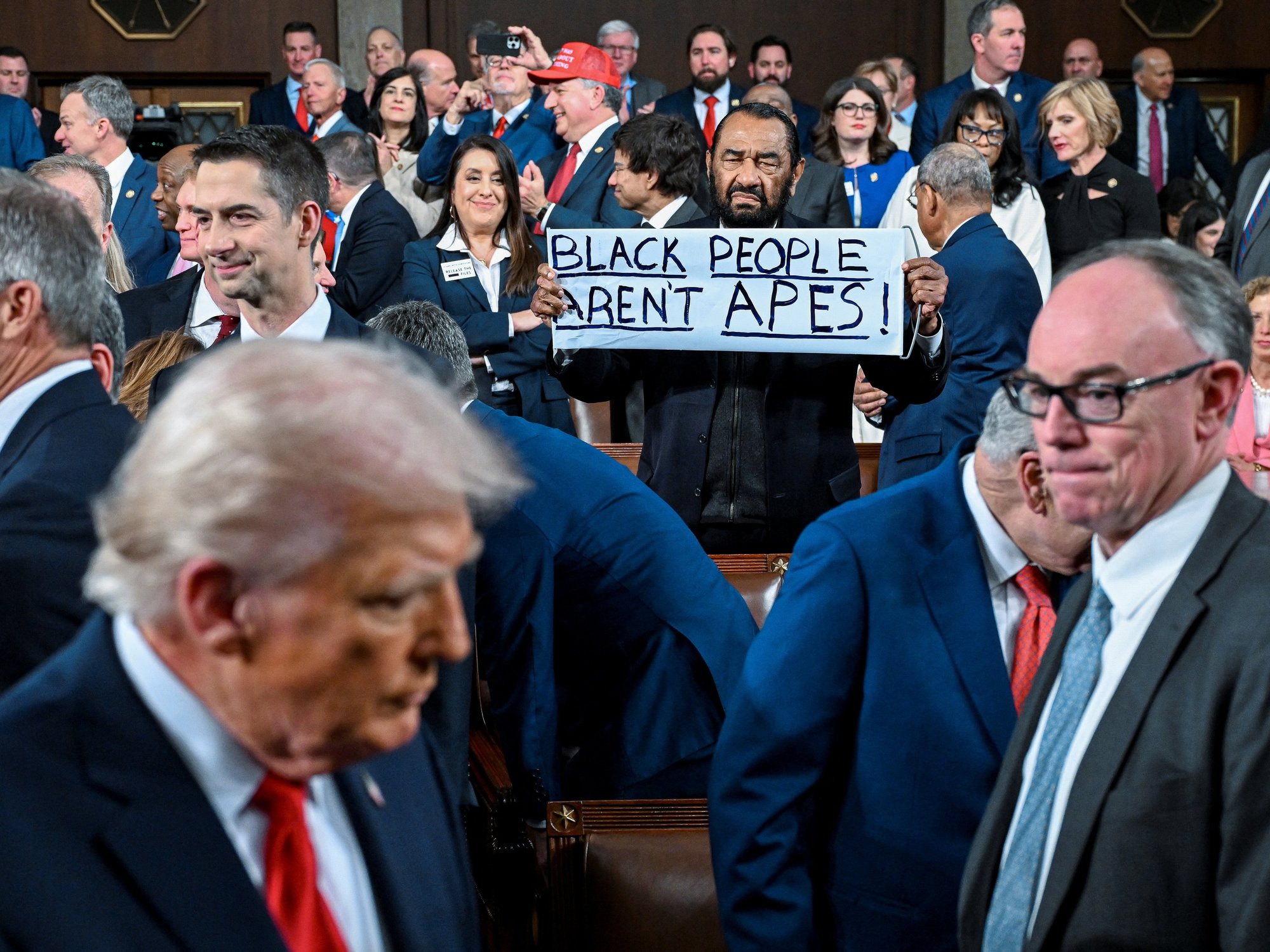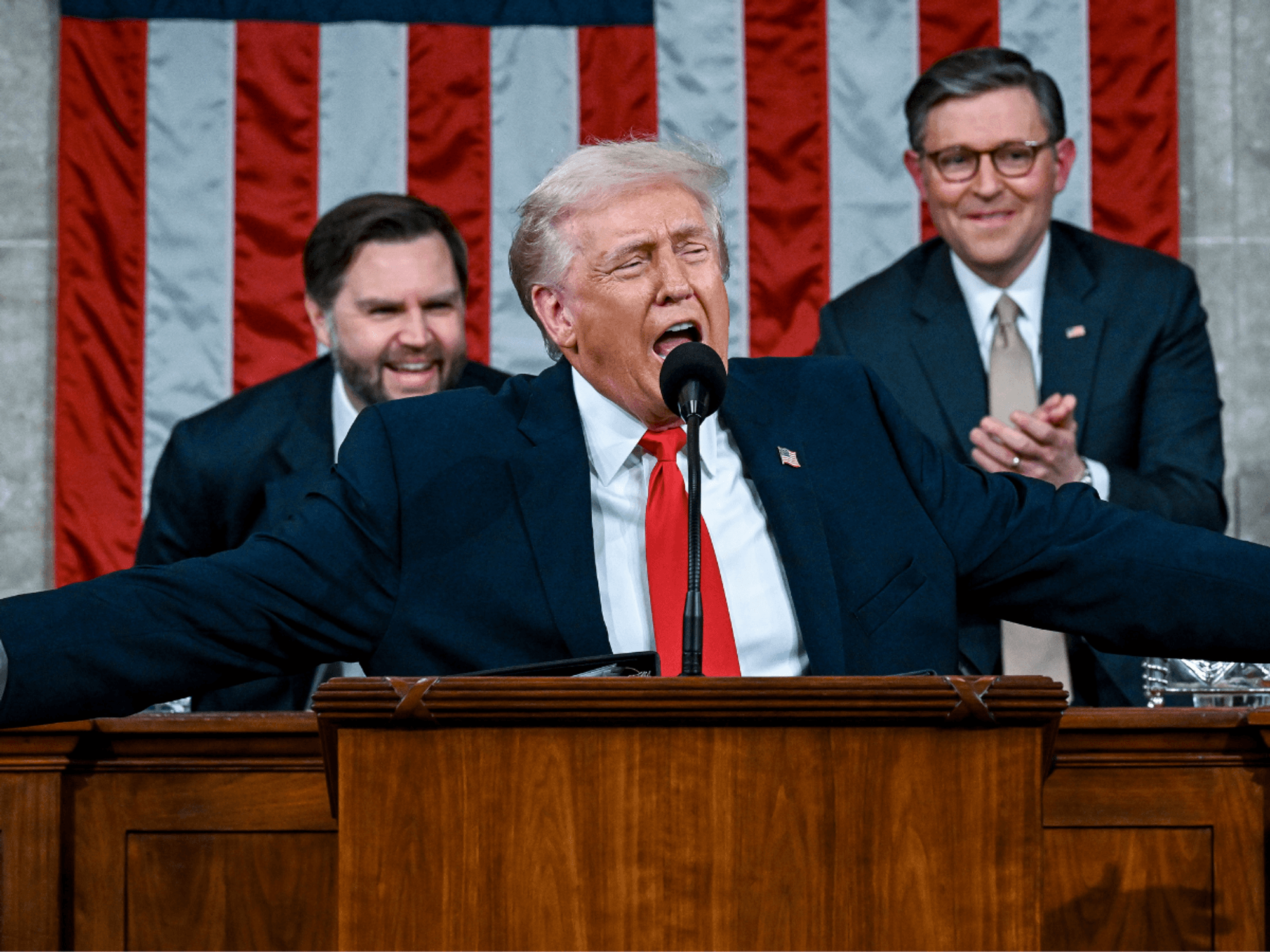Starmer's bootlicking of Brussels is about to incur the wrath of America and the Red Wall - Lee Cohen

Sebastian Gorka says Britons 'don't have much to worry about' with Trump tariffs |
GB News
OPINION: Keir Starmer’s catastrophic leadership risks plunging Britain deeper into decline
Don't Miss
Most Read
Latest
On April 15, 2025, Vice President JD Vance dangled the prospect of a transformative opportunity before Britain: a US-UK free trade deal, hinted at in an interview where he cited President Trump’s affinity for the UK and a “good chance” for a “reciprocal relationship” unlike Germany’s lopsided terms.
For a nation battered by economic turmoil and a crisis of identity, this proposal is a beacon of hope, not just for trade but for reclaiming Brexit’s vision of sovereignty.
Yet, Keir Starmer’s possible pivot toward EU alignment by May 2025 threatens to throw cold water on this prospect, prioritising Brussels over British voters.
A UK-US trade deal is a golden opportunity to restore transatlantic strength, but Starmer’s catastrophic leadership risks plunging Britain deeper into decline.
From America, we observe Britain’s plight with alarm. A record nearly 700 migrants crossed the Channel on April 12, fuelling outrage over unchecked immigration. British Steel’s collapse looms, with Starmer himself warning of national security risks.
Polls reveal 68 per cent of voters believe “Britain is broken”, reflecting the grim cost-of-living crisis and cultural erosion. Into this chaos, Trump offers lower tariffs—10 per cent on UK goods versus the EU’s 20 per cent—and market access for steel, cars, and agriculture.
This deal could revive industries and honour Brexit’s promise of independence, but Starmer’s EU reset threatens to unravel it.

Starmer's bootlicking of Brussels is about to incur the wrath of America and the Red Wall - Lee Cohen
|Getty Images
Starmer’s plan to align with Brussels’ food and veterinary standards, potentially under European Court of Justice oversight, is a thinly-veiled attempt to reverse Brexit. This “reset”, aimed at easing EU trade and resolving Northern Ireland’s customs issues, benefits the UK’s largest market (41 per cent of goods exports in 2024). But it sacrifices sovereignty, chaining Britain to EU rules and alienating Brexiteers like Lord Frost and Nigel Farage, who rightfully call it a betrayal of the 2016 vote. By prioritising EU integration, Starmer risks derailing talks with the US, the UK’s second-largest market (18 per cent of exports), where Trump seeks agricultural access incompatible with EU standards.
This EU tilt is only the latest in Starmer’s string of failures, visible even from across the Atlantic. Since July 2024, his decisions have consistently misfired. From a divisive budget that spooked markets to perceived two-tier justice favouring certain communities, Labour’s policies have deepened economic woes and public distrust. Popular frustration boils over at being ignored—on mass immigration, demands for inquiries into systemic abuses, and rejection of EU ties. Starmer’s EU alignment, potentially paving the way for measures like youth freedom of movement, dismisses these concerns, signalling that voters’ voices don’t matter. At a time when Britain should be cementing ties with the US, Starmer’s Brussels embrace is yet another wrong bet, risking unnecessary barriers with a $20trillion market.
The deal Vance signalled, by contrast, aligns with the popular mood sweeping both nations. In America, Trump’s America First agenda — championed by Vance, a former trade sceptic — seeks reciprocal deals that prioritise workers. Britain’s Red Wall, where Farage’s Reform UK gains traction, mirrors this revolt against globalist elites. The deal could bolster industries like steel, vital for jobs and defence, and reduce reliance on adversarial powers like China or the EU. Vance’s rightful nod to America as an “Anglo country” evokes a shared heritage—Churchill and Roosevelt, Thatcher and Reagan—that resonates with throngs yearning for a Britain unbowed by woke overreach, from pub speech curbs to immigration leniency.
The risks are stark. Starmer’s EU pivot eviscerates Britain’s leverage in US talks, as EU standards clash with American agricultural demands. Given the chance, Labour’s Remainer MPs will surely prioritise Brussels in a heartbeat over a deal that could potentially alter Britain’s precarious trajectory. Public anger, already simmering over ignored demands for border control, free speech suppression and cultural preservation, will erupt if Labour’s EU concessions deepen economic pain. Reform’s Durham rally on April 15 and by-election wins portend a reckoning if Starmer defies the Brexit majority.
Just as the original notion of Brexit, and with the same spirit that originally swept Trump to power, a UK-US trade deal would be a people’s triumph. It’s a chance to save British Steel’s “heart of Britain”, curb migration by projecting strength, and restore voter trust. Starmer must reject Brussels’ orbit and embrace the transatlantic bond, proving Labour can deliver for steelworkers and farmers, not just City elites. Failure risks not just further economic loss but an emboldened political uprising, as Farage’s vision laudably gains ground.
Britain faces a choice: a US deal that honours Brexit’s spirit or Starmer’s EU surrender that impoverishes the nation. Vance’s overture is a call to revive not just sovereignty but viability itself—a transatlantic pact to defy globalist decay. With history against him, one is hard pressed to predict Starmer’s alignment with the winners in this. Inevitably, he will face the Red Wall.










